Opening ceremony of the quantum computer “VLQ” was celebrated at IT4I in September 2025.
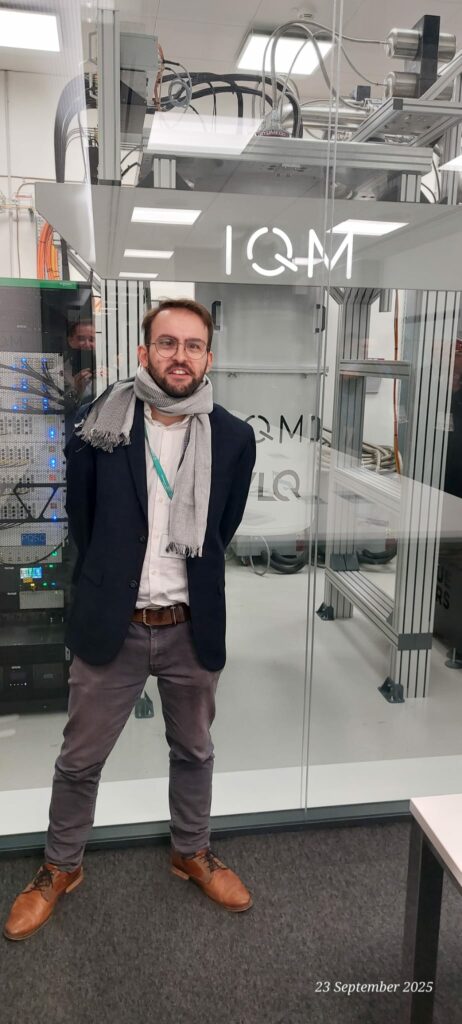
TJY Derrien now has access to the quantum computer VLQ through VSB-TUO IT4I.
You can contact at derrien@fzu.cz or thibault.derrien@vsb.cz for any proposition.
Out of our joint publication with the Charles University, a popularization article was published by Public Relation service of the FZU Institute of Physics in the Czech journal “Fine Mechanics and Optics”.
The paper is available here in Czech language.
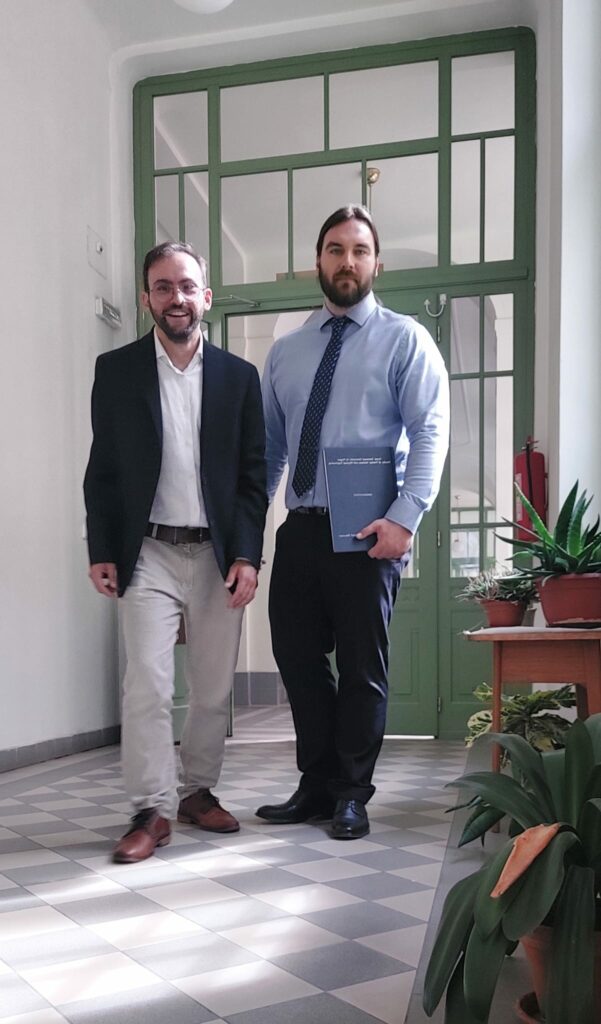
On September 5th 2025, Ing. Krystof Hlinomaz became Ing. Krystof Hlinomaz, Ph. D. with 7/7 votes from the jury. He then obtained PhD from the Faculty of Nuclear Sciences and Physical Engineering, Czech Technical University of Prague.
He was my 1st official PhD student. I was his supervisor specialist. Congratulations, Krystof!
He currently has double affiliation:
– FZU Department of Scientific Laser Applications,
– Institute of Plasma Physics, TOPTEC.
Looking forward to next adventures.
A new position for a PhD student is open.
TJY Derrien will present an introduction to artificial intelligence at FZU on October 3rd 2025.
TJY Derrien, lead of the group of Ultrafast Photonics (FZU/SLA department) and of Quantum Dynamics of Systems (VSB/IT4I Lab. of Quantum Computing) presented a poster at the CLEO Europe conference. The event was merged with Laser World of Quantum and a SPIE conference.
TJY Derrien presented a poster presenting a collaboration with the Max Born Institute on the modeling of femtosecond elliptical pulses irradiating fused silica glass.
The conference also hosted two Nobel Prize awardees of the attosecond science community: Ferenc Krausz (Max Planck for Quantum Optics) and Anne l’Huillier (Lund University). The latest published a paper citing our latest work published on high harmonic generation.
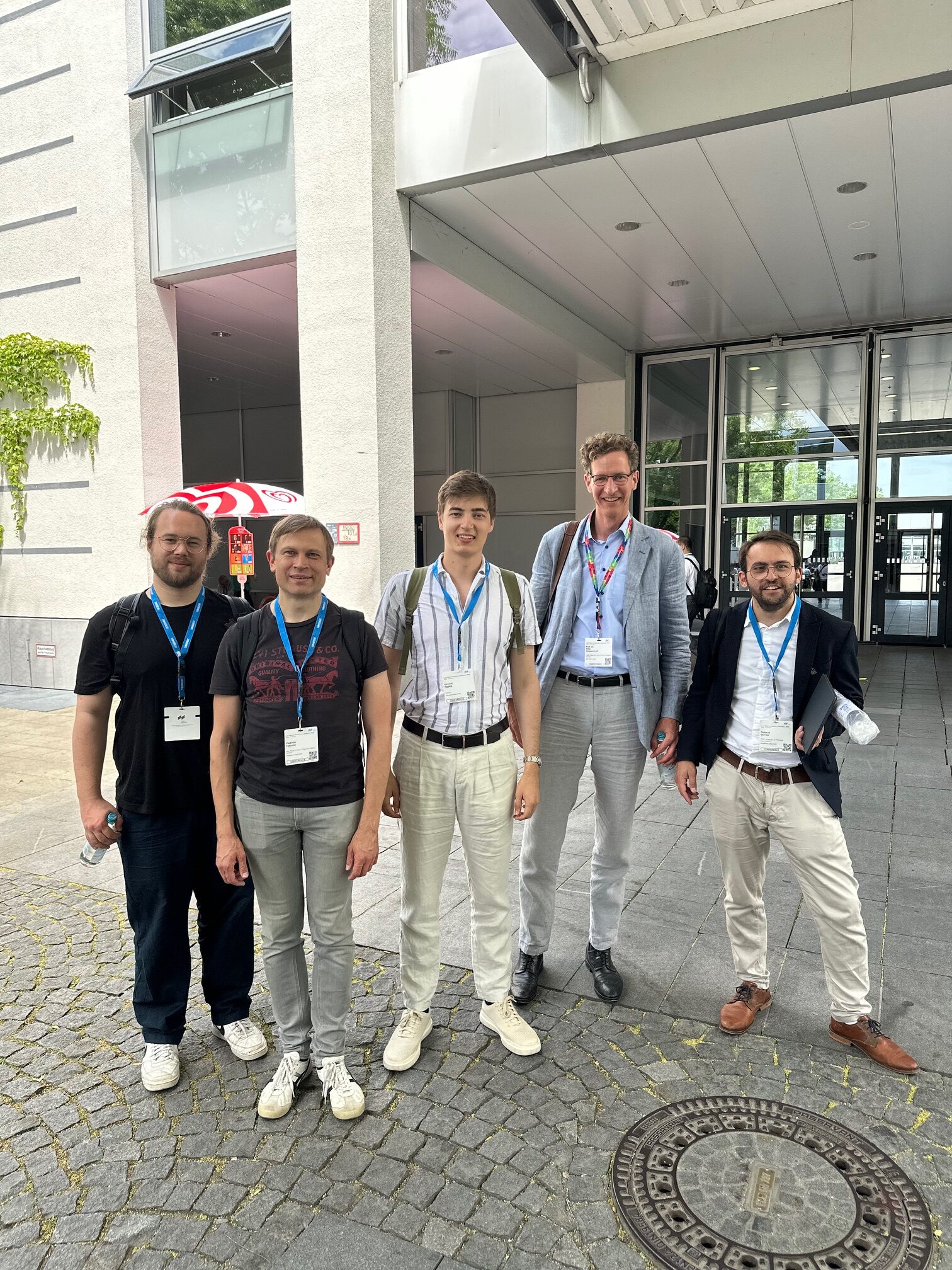
International Erasmus student Buse Yildrim is visiting us for 2 months. She will touch both theoretical and experimental aspects of light-matter interaction on forefront topics in this field.
Welcome among us, Buse!
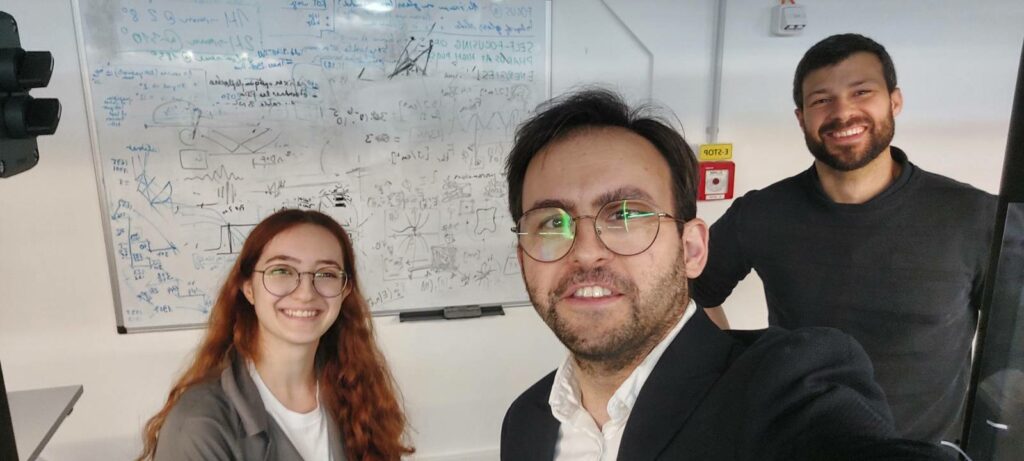
Today, the Czech President Petr Pavel visited the IT4Innovation (part of VSB-Technical University of Ostrava) and saw the 1st quantum computer of the Czech Republic, named VLQ.
Prof. Marek Lampart, Dr. T. J.-Y. Derrien, and PhD student Michal Belina could briefly shake president’s hand, drop two sentences and make a picture together.
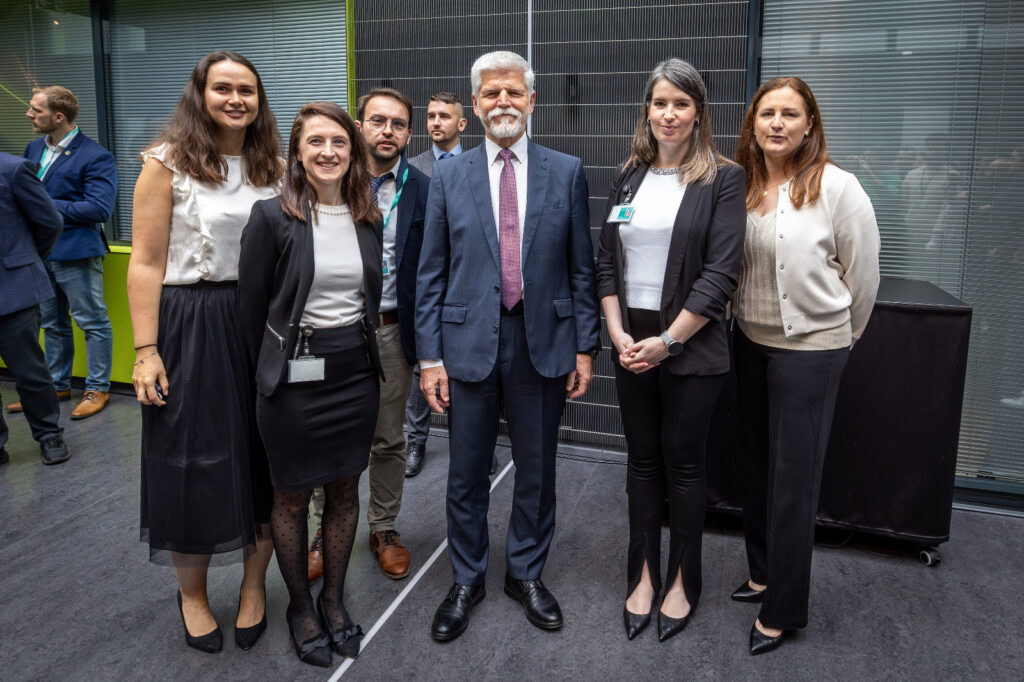
Members of the Faculty of Mathematics and Physics (Charles University of Prague), the FZU Institute of Physics (Czech Academy of Sciences) and VSB-IT4I Ostrava have just published a joint paper in the journal Physical Review Letters (American Physical Society). The paper demonstrates the extraordinary coherent control that is possible to have on the light spectrum emitted by a sample of silicon. When irradiated by two laser pulses that are well controlled in phase, the work demonstrates a very high degree of prediction capability and therefore of control of the interaction. This reflects current possibilities in high harmonic spectroscopy and opens perspectives on coherent control for quantum computing. While being on arXiv, the paper has already been cited by a Nobel Prize awardee from Lund University and by Stanford University, leaders in the field.
One author of the study, Thibault J.-Y. Derrien, lead of the Ultrafast Photonics group (FZU) and of Quantum Dynamics of Systems (IT4I) is delighted to have contributed to the visibility of the country at the highest international level.
Today was deadline for resubmission of the GACR proposals for starting date on Jan 2026. I did resubmit project of last year, given that 7 referees were in favor of funding the proposal.